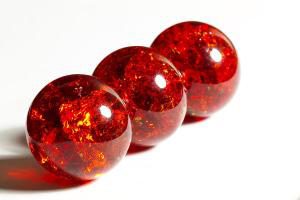
by W. E. Petersen
During the waning years of the Depression in a small southeastern Idaho community, I used to stop by Mr. Miller’s roadside stand for farm-fresh produce, as the season made it available. Food and money were still extremely scarce, and barter was used extensively.
On one particular day, as Mr. Miller was bagging some early potatoes for me, I noticed a small boy, delicate of bone and feature, ragged, but clean, hungrily appraising a basket of freshly picked green peas. I am a pushover for creamed peas and new potatoes. Pondering the peas, I couldn’t help overhearing the conversation between Mr. Miller and the ragged boy next to me.
“Hello, Barry, how are you today?”
“H’lo, Mr. Miller. Fine, thanks. Jus’ admirin’ them peas. Sure look good.”
“They are good, Barry. How’s your Ma?”
“Fine. Gittin’ stronger alla’ time.”
“Good. Anything I can help you with?”
“No, sir. Jus’ admirin’ them peas.”
“Would you like to take some home?”
“No, sir. Got nuthin’ to pay fer ’em with.”
“Well, what have you got to trade me for some of those peas?”
“All I got’s my prize aggie—best taw around here.”
“Is that right? Let me see it.”
“Here ’tis. She’s a dandy.”
“I can see that. Hmmm. Only thing is this one is blue. I sort of go for red. Do you have a red one like this at home?”
“Not ’zackly—but almost.”
“Tell you what. Take this sack of peas home with you, and next trip this way let me look at that red taw.”
“Sure will. Thanks a lot, Mr. Miller.” And away the lad went with a sack of fresh green peas.
Mrs. Miller, who was standing nearby, came over to help me. With a sly smile, she said, “There are two other boys like him in our community. All three are in very poor circumstances. Jim just loves to bargain with them for peas, apples, tomatoes, or whatever. When they come back with their red marbles, and they always do, he decides he doesn’t like red after all, and he sends them home with a bag of produce for a green marble, or orange perhaps.”
I left the stand, smiling to myself, impressed with this man. A short time later I moved to Utah, but never forgot the story of this man and the boys—and their bartering.
Several years went by, each more rapid than the previous one. Just recently I had occasion to visit some old friends in that Idaho community, and while there, learned that Mr. Miller had died. They were having his viewing that evening, and knowing my friends wanted to go I agreed to accompany them.
Upon our arrival at the mortuary we fell into line to meet the relatives of the deceased, and to offer whatever words of comfort we could. Ahead of us in the line were three fine-looking young men. One was in an army uniform, and the other two wore short haircuts, dark suits, and white shirts. They approached Mrs. Miller, standing smiling and composed by her husband’s casket. Each of the young men hugged her, kissed her on the cheek, spoke briefly to her, and moved on to the casket. Her misty, light blue eyes followed them as one by one each young man stopped briefly, placed his own warm hand over the cold pale hand in the casket, and left the mortuary awkwardly wiping his eyes.
As our turn came to meet Mrs. Miller, I told her who I was, and mentioned the story she had told me about the marbles. Eyes glistening, she took my hand and led me to the casket.
“This is an amazing coincidence,” she said. “Those three boys that just left were the boys I told you about. They just told me how they appreciated the things Jim ‘traded’ them. Now, at last, when Jim could not change his mind about color or size, they came to pay their debt. We’ve never had a great deal of the wealth of this world,” she confided, “but right now Jim would consider himself the richest man in Idaho.”
With loving gentleness she lifted the lifeless fingers of her deceased husband. Resting underneath were three magnificent, shiny red marbles.
First published as “Three Marbles” in the October 1975 Ensign magazine.




